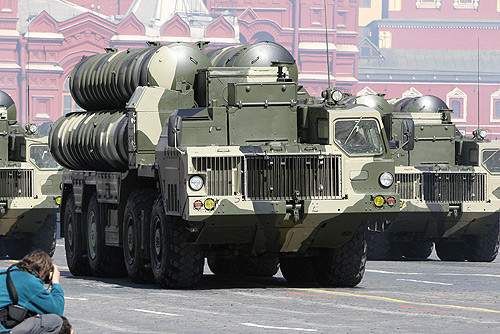Iran announces successful test of $800m Russia-built air defence system
Iran's new anti-missile system, Damavand, after the country's volcano
Iran has successfully tested an advanced air defence system purchased from Russia in another demonstration of strong ties between the two countries.
The S-300 system can track and take out multiple targets at a range of up to 125 miles (200 km) and has been named Damavand after Iran's highest mountain – a potentially active volcano.
The successful test, which was announced by IRNA – Iran's state news agency – on Saturday (4 March), looks likely to be viewed with concern by the West, and particularly by the US, where President Trump has vowed to take a tough stance against the Iranian regime.
On 29 January, the testing of a ballistic missile by Iran drew swift condemnation and fresh sanctions from Washington.
Iran and Russia signed an $800m (£650m) contract for Russia to supply the S-300 system in 2007, but Russia suspended delivery in 2010 following strong condemnation from the US and Israel. Since then, the conflict in Syria has resulted in ever-strengthening military ties between Iran and Russia, both of whom support the regime of President Bashar al-Assad.
The US, Turkey and Saudi Arabia support anti-Assad forces in Syria, though all sides claim to have a common enemy in the form of Isis.
Israel has repeatedly warned that Iran poses a threat to stability in the region, and Israeli Prime Minister Netanyahu claims the lifting of sanctions following the 2015 nuclear deal, which was brokered in secret by the Obama administation, has emboldened the regime. According to Radio Free Europe, Russia could supply Iran with cruise missiles when a ban on arms expires in 2020.
In an interview carried by the Tehran Times on 4 March, Russian Foreign Ministry spokeswoman Maria Zakharova said: "We have repeatedly talked about the fact that the relationships with our partners on the international arena are of self-sufficient value to us.
"We develop relations with countries not because someone likes or dislikes it. We proceed from our national interests, from the history of our mutual relationships with other nations."

© Copyright IBTimes 2025. All rights reserved.






















